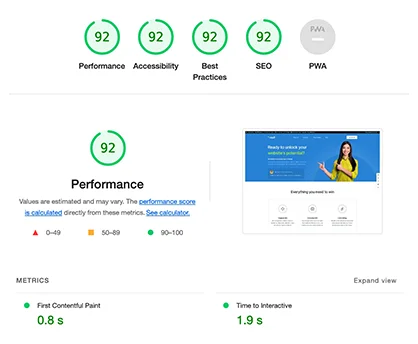If you want to know why Shopify is the best platform for your store, you’re in the right place.
In the world of eCommerce, choosing the right platform to build your online business is a monumental task, especially since getting it right—right from the get go—is an absolute must.
And here’s why:
Beyond the initial steps of purchasing your domain and setting up your homepage, product pages, checkout and thank you pages, there is a substantial technology infrastructure that must be integrated on your site to support the customer buying journey and drive them toward conversion.
We call it the tech stack.
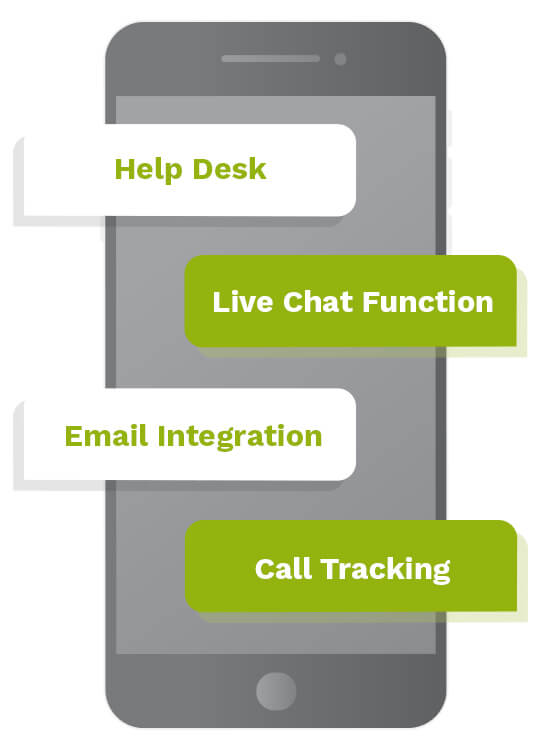
Your tech stack includes features like the help desk, live chat function, email integration, call tracking, and (if you really know what you’re doing) an exit-intent feature that encourages visitors to stay and complete their purchase.
As you probably guessed, these integrations take a significant amount of time, effort, and energy to configure—and even more time to optimize.
Not only will selecting the right eCommerce platform from the start ensure you get the best features and capabilities, it will also save you the expense of switching platforms (and the enormous headache that comes with it) after your store is already up and running.
So, how do you know which eCommerce platform is the best?
Easy: It’s Shopify.
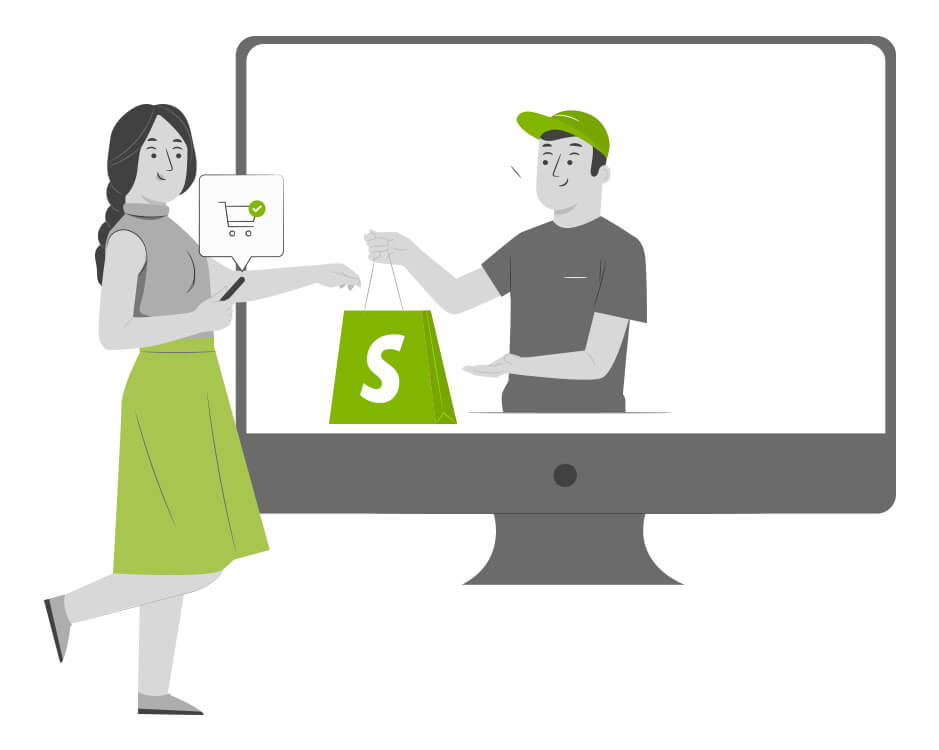
Why Shopify?
We’re about to give you a whole list; but here’s our number one reason why Shopify is the best eCommerce platform available:
- Seamless integration capabilities. Shopify makes it super easy to create your site and seamlessly integrate with all the tools that you need, including Google Ads and Google Merchant Center
And while that might be our favorite reason—it’s certainly not the only reason. If you’re new to Shopify, allow us to walk you through why it’s our top choice.
A Word on Shopify
Like most eCommerce platforms, Shopify is a subscription-based software that enables business owners to set up an online store (but really it’s so much more).
Immediately upon subscribing, users have access to a vast selection of templates to create and customize their online store, tools for selling products both online and in person, integrated payment processing technology, SEO and marketing tools, and, of course, the “best-converting checkout on the internet.”
With the exception of that last one, however, you can get these things with a lot of eCommerce platforms—so what’s so special about Shopify?
A lot, is the answer.
In fact, Shopify offers so many different features that, when compared with even its biggest competitors, it’s virtually untouchable.
I Already Have an eCommerce Platform…Is It Worth Switching to Shopify?
Yep.
True, switching can seem even more daunting than choosing your platform in the first place.
And yes, it may cost a bit more.
But making the switch to the most optimized and supported eCommerce platform in the industry is well worth the pain and investment—especially if your current platform has been a source of frustration in the past.

For example, maybe you have a solid eCommerce platform… but it doesn’t integrate well with other technology stacks. Or, maybe you’ve been eager to start email marketing, but because you’re not a developer, you don’t know where to start.
Shopify Solves These Problems and More
And because Shopify is so user friendly, making the switch will be nothing like the colossal headache it was to build your first eCommerce store. You never have to worry about facing one of the scariest words in an entrepreneur’s dictionary—coding.
Right now, even thinking about starting over may trigger flashbacks of the first time you locked eyes with HTML. Or that time you hit enter on your store’s new URL… only to see the dreaded 404 Error.
Don’t worry; Shopify has support and instructions to make things easy.

From the beginning, Shopify has been on the cutting edge of integrations, tech stacks, mobile responsive designs, themes, and optimizations. They rub elbows with the investors on Shark Tank and really listen to their customer base to deliver the changes and new innovations they ask for.
And, when it comes to recommending an eCommerce platform for our clients, they are the first (and only) name we recommend.
Which brings us to:
The Top 20 Reasons Why Shopify Is Still the Best eCommerce Platform
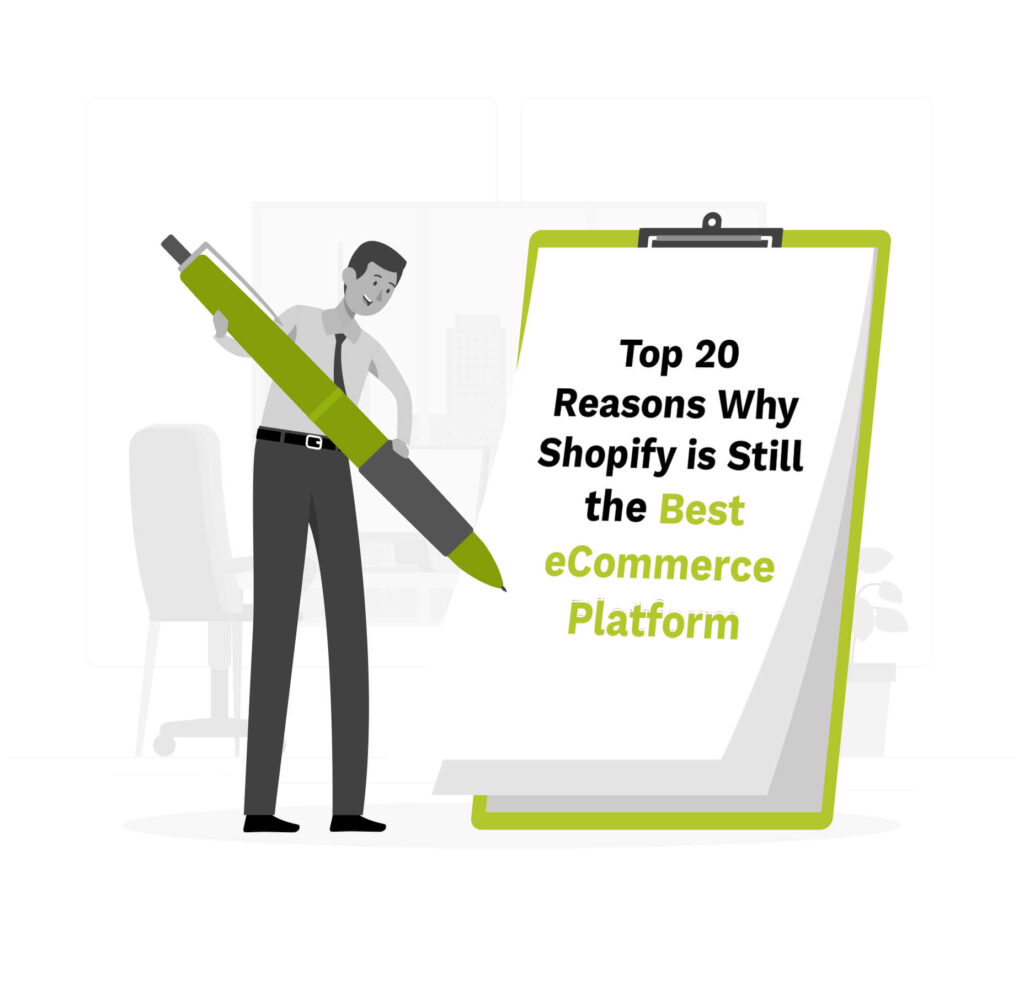
- Seamless integration with Google Ads. Shopify makes it super easy to create your site and seamlessly integrate with all the tools that you need, including Google Ads and its ecosystem. (To learn more, check out our blog Google Ads for Shopify: The 7 Critical Settings for eCommerce Ads Success.)
- Tons of available themes. Choose from more than 70 professional-looking templates to customize the look and feel of your online store. Themes cover a broad range of industries and many are created by world-renowned designers.
- Integration with top payment providers. In addition to PayPal (one of Shopify’s default payment providers), the platform allows for easy integration with third-party payment providers including Stripe and PaymentCloud, as well as with increasingly popular “buy now, pay later” apps like Klarna, Affirm, and Afterpay.
- They support blogs. If we’ve said it once, we’ve said it a thousand times: Content is king. Quality content boosts your search ranking, provides value for your audience, gets shared on social, increases conversions, and the list goes on.
- Tracking and maintaining customer data. Shopify analytics tracks key metrics that provide insight into the performance of your store and consumer behavior.
- It’s a website builder and a CMS. Along with being a user-friendly website builder, Shopify is also a robust content management system (CMS) that gives users complete control over their website navigation, content pages, and design.
- Optimized for SEO, easily customizable keywords. Shopify online stores have built-in SEO features that allow businesses to optimize their content.
- Shopify email is awesome. Create a custom email campaign through Shopify, send emails from your domain, and easily manage your campaigns. And if you use an existing email provider, Shopify makes it easy to integrate.
- You can add coupons and discount codes. All Shopify plans include discount codes, making it easy to offer customers a fixed value, percentage, or shipping discount on items in your store.
- Full HTML and CSS editing abilities. Got some web development experience under your belt? Don’t fret! You don’t have to stick with the existing templates and themes. Shopify lets you edit your theme code and easily make detailed changes to your online store.
- You can add a Buy Button to your blog or non-Shopify sites. This simple shortcut to purchasing your products or services can even include pictures, descriptions, and prices.
- Shopify POS (and POS integration). In addition to providing its own Shopify POS free of charge, the Shopify platform allows for easy integration with Square, Vend, Clover, and others.
- You can make a customizable profile for your employees. You can easily add and remove staff and edit their login permissions to your store.
- Integrations with live chats. In addition to Shopify Chat (the platform’s native live chat function), it also allows for easy integration with numerous live chat apps.
- Create your own store gift cards. Easily issue a free gift card with a set value to an existing customer as an incentive, promotion, store credit, or reward.
- Advanced reporting. Advanced Shopify and Shopify Plus users have the ability to modify default reports and create custom reports (using Shopify’s filtering and editing features) to display the exact data they need.
- Built-in cart abandonment feature. Nearly 70% of online shopping carts are abandoned. Shopify allows you to automatically send a customized email to customers, encouraging them to complete their checkout.
- Integration with help desk apps. Shopify allows for easy integration with Zendesk, Freshdesk, HelpDesk, LiveAgent, and others.
- Analytics reporting. Shopify Analytics reports let you quickly and easily review store activity, visitor behavior, and more. You can even create custom reports to suit your needs.
- Shipping carrier integration. Shipping products with Shopify is incredibly simple, and most major shipping carriers integrate with Shopify by default, including FedEx, UPS, USPS, Canada Post.
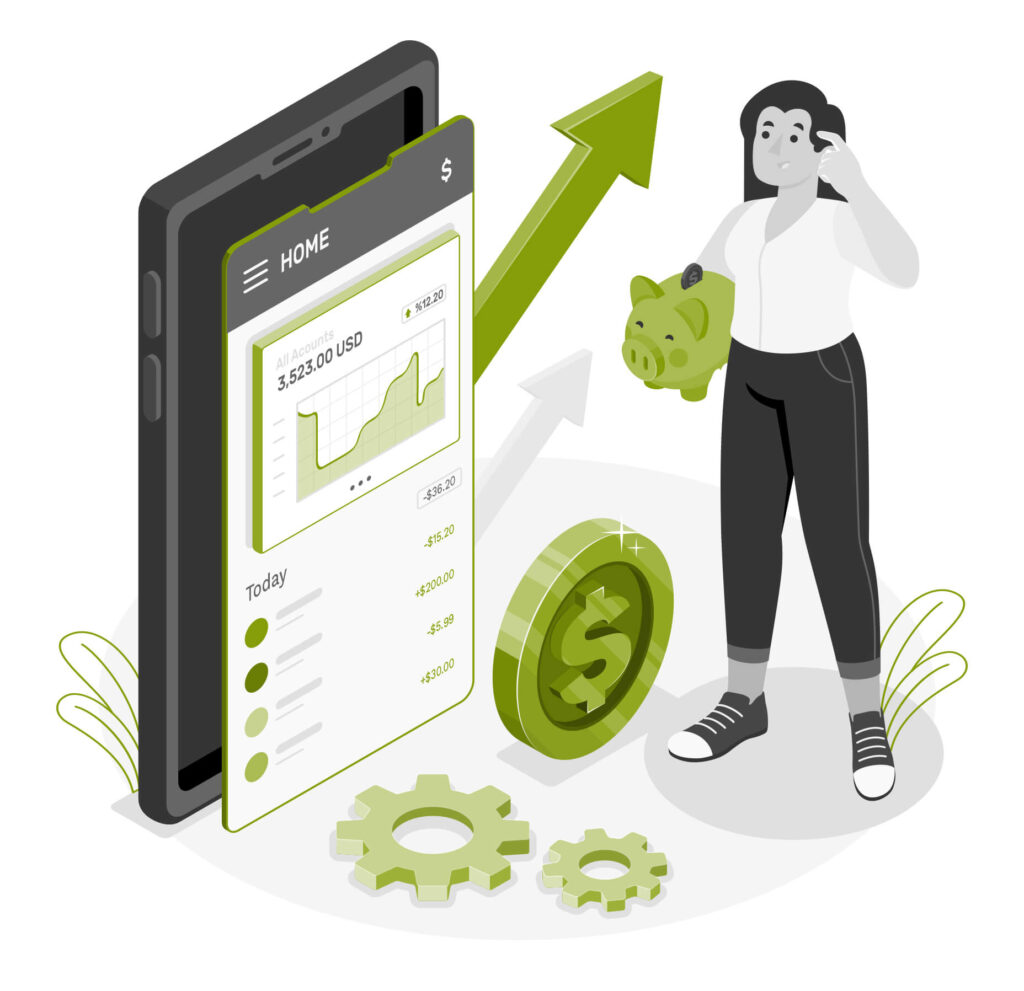
Simplify Your eCommerce and Increase Sales: Go With Shopify
Once you make the switch, be sure to check out our Google Ads for eCommerce: The Ultimate Guide.
Author
Pamela is the Senior Content Writer at Solutions 8. When she's not writing, you can find her hiking in the woods with her dogs. She is currently on a quest to visit every national park in the United States.
 Pamela Sapio
Pamela Sapio



